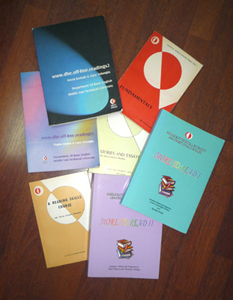From Buildings to Barracks
Last Updated:
- English
- Türkçe
One of the first operations of the Council of Higher Education was to increase the student quota of METU without sufficient inquiry. The first blow of quota increase could be evaded by the construction, by METU itself, of E Building towards the end of the 1970s. However, this second blow left the METU Administration in desperation. Within 1-2 months, the Council of Higher Education erected an 18-classroom pre-fabricated make-shift building, the F Barracks, which had no toilets and was used as such for 1-2 years to come. Unfortunately, with the erection of G & H barracks with the initiative of the METU Administration, an era of “education in make-shift buildings”, which would last until the first years of the 2000s, started.
Following is the list of the directors of the SFL:
| Prof. Ahmet Edip UYSAL (Acting) | 1982 – 1987 |
| Abdurrahman ÇİÇEK | 1987 – 1994 |
| Banu BARUTLU | 1994 – 2001 |
| Prof. Hüsnü ENGİNARLAR | 2001 – 2013 |
| Özlem ATALAY | 2013 – continuing |
The following members of faculty served as Chairpersons in the Department of Basic English and the Department of Modern Languages:
| Department of Basic English | Department of Modern Languages |
| Hüsnü ENGİNARLAR (1983 – 1986) | Dr. Joshua BEAR (1983 – 1986) |
| Banu BARUTLU (1986 – 1994) | Ayşe BENER (1986 – 1995) |
| Naz DİNO (1994 – 1997) | Cesur ÖZTÜRK (1995 – 1998) |
| Serper TÜMER (1997 – 2000) | Yeşim ÇÖTELİ (1998 – 2004) |
| Zuhal SAYMAN (2000 – 2001) | Nihal AKDERE (2004 – 2007) |
| Sibel TÜZEL (2001 – 2004) | Aylin GRAVES (2007 - 2013) |
| Ayçe BARIŞIK (2004 - 2007) | Figen İYİDOĞAN (2013 - 2016) |
| Bülent KANDİLLER (2007 - 2010) | Dr. Gökçe ERKAN (2016 - continuing) |
| Özlem ATALAY (2010 - 2013) | |
| Aliye Hale BİNGÖL (2013 - continuing) |
Developments that started in the mid-1980s and have extended to the end of the 1990s in the Departments of Modern Languages and Basic English respectively are:
1. The increase in the student quota had its effects on the Department of Modern Languages as well. Three options were discussed by the Department Board:
- the recruitment of teachers, which turned out not to be not possible,
- increasing the instructors’ teaching load from 2 sections to 3,
- decreasing weekly contact hours from 6-10 to 4.
After long discussions, unfortunately, the 10-credit Freshman English courses offered since foundation for the students who had completed the English preparatory year were limited to 4 credits. There was a price paid in the coming years. The administration of the university had to increase the credits of English courses to 14 by adding ENG 211 and 311 to the curriculum in the 1990s. This, however, did not bring a full solution to the problem.
2. The course schedules at the Department of Basic English were redesigned and
-
the 20-hour per week instruction was increased to 30 hours for the Beginners Group. In addition, a short summer semester was conducted as a trial in this group.
-
instead of the final exams given separately for each of the 3 levels, one final exam for all groups started to be administered and the weight of this exam was increased from 30% to 40%.
3. An English Proficiency Exam written jointly with the Department of Modern Languages was envisaged as a sole determiner in passing or failing. This, however, could not be realized in the 1980s and was put into effect at the beginning of the 1990s.
4. The complaints regarding the “home made” Project One series led to the adoption of, first, the series called Success with English, and then, the Kernel series. Later, the use of commercial series continued with Strategies and Language in Use. The production of coursebooks and course materials in Reading and Writing Skills continued, and the Department started to contribute significantly to language training in the country in this regard. Physical Science Reader written by Suzan Öniz, Tony Cross et.al. is worth mentioning as one such course series.


Samples from DBE book Samples from MLD books
Prepared by: Prof. Dr. Hüsnü ENGİNARLAR
Interviewees: Prof. Dr. Ayten BEAR, Doç. Dr. Joshua BEAR, Öğr. Gör. Nevin İNAL, Öğr. Gör. Naz DİNO
